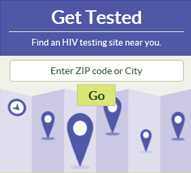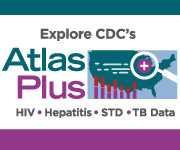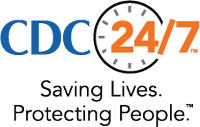HIV/AIDS
What is HIV?
HIV stands for human immunodeficiency virus. It is the virus that can lead to acquired immunodeficiency syndrome, or AIDS. Unlike some other viruses, the human body cannot get rid of HIV. That means that once you have HIV, you have it for life.
How Is HIV Spread?
In the United States, HIV is spread mainly by:
- Having sex with someone who has HIV. In general:
- Anal sex is the highest-risk sexual behavior. Receptive anal sex (bottoming) is riskier than insertive anal sex (topping).
- Vaginal sex is the second highest-risk sexual behavior.
- Having many sex partners or having other STDs can increase the chances of getting HIV through sex.
- Sharing needles, syringes, rinse water, or other equipment (works) used to make injectable drugs with someone who has HIV.
Less commonly, HIV may be spread by:
- Oral sex. The chances of getting HIV through oral sex are much less than from anal or vaginal sex. Learn more about oral sex and HIV risk.
Learn more ways HIV is transmitted
What are the Signs and Symptoms Of HIV?
Within a few weeks of getting HIV, some people get flu-like symptoms that last for a week or two, but others have no symptoms at all. After initial infection, people may not have any symptoms for years. HIV can be controlled with the right medical treatment and care. However, if it’s left untreated, it may develop into AIDS (acquired immunodeficiency syndrome).
Top of PageHow can I prevent HIV?
You can take steps to prevent HIV. Here’s what you can do:
- Understand what are riskier and safer sexual behaviors. Your chances of getting HIV from oral sex are much less than from anal or vaginal sex. You have the most chance of getting or giving someone HIV from anal sex. If you are HIV-negative, insertive anal sex (topping) is less risky for getting HIV than receptive anal sex (bottoming). You won’t get HIV or give it to someone else from sexual activities that do not involve exchanging body fluids.
- Use condoms each time you have sex and make sure to use them correctly each time.
- Reduce the number of people you have sex with. The number of sex partners you have affects your chances of getting HIV. The more partners you have, the more likely you are to have a partner with HIV or who has an STD. Both of these raise your chances of getting HIV.
- If you have HIV, take HIV antiretroviral treatment (ART) regularly to greatly lower the chances of giving HIV to others and improve your own health.
- If your partner is HIV-positive, encourage your partner to get and stay on treatment. ART reduces the amount of HIV virus (viral load) in blood and body fluids. ART can keep people with HIV healthy for many years, and greatly reduce the chance of giving HIV to sex partners if taken regularly and correctly.
- Talk to your doctor about pre-exposure prophylaxis (PrEP), taking HIV medicine daily to prevent getting HIV. You should consider PrEP if you are
- HIV-negative and are in an ongoing sexual relationship with an HIV-positive partner;
- HIV-negative and are in an ongoing sexual relationship with a sex partner who injects drugs;
- HIV-negative and have had an STD or anal sex with a male partner without condoms in the past 6 months and are not in an exclusive relationship with a recently tested, HIV-negative partner.
- Talk to your doctor right away (within 3 days) about post-exposure prophylaxis (PEP) if you have a possible exposure to HIV. An example of a possible exposure is if you have anal or vaginal sex without a condom with someone who is or may be HIV-positive, and you are HIV-negative and not taking PrEP. Your chance of exposure to HIV is lower if your HIV-positive partner is taking antiretroviral therapy (ART) regularly and correctly, especially if his/her viral load is undetectable. Starting PEP immediately and taking it daily for 4 weeks reduces your chance of getting HIV.
- Get tested and treated for other STDs and encourage your partners to do the same. If you are sexually active, get tested at least once a year. STDs can have long-term health consequences. They can also increase your chance of getting HIV or giving it to others. Find an STD testing site.
Visit Act Against AIDS for more information about HIV and what you can do to stop HIV.
Top of PageRelated Information
- HIV Basics
- Start Talking, Stop HIV Campaign
- Testing Makes Us Stronger Campaign
- Reasons/Razones Campaign
- HIV among Gay and Bisexual Men
- HIV among Gay and Bisexual Men Fact Sheet [PDF – 83 KB]
- HIV among African American Gay and Bisexual Men
- HIV and Young Men Who Have Sex with Men Fact Sheet [PDF – 527 KB]
- HIV Treatment Works Campaign
- HIV Among Older Americans
- Safer Sex—Fenway Health
- Which Safe Sex Tool is Right for You?—Fenway Health [PDF – 1.4 MB]
- Ten Things Gay Men Should Discuss with their Health Care Providers – GLMA
- LGBT Health Clinics and Services
- The Body: HIV/AIDS Resource Center for Gay Men
- Page last reviewed: February 29, 2016
- Page last updated: February 29, 2016
- Content source:


 ShareCompartir
ShareCompartir



